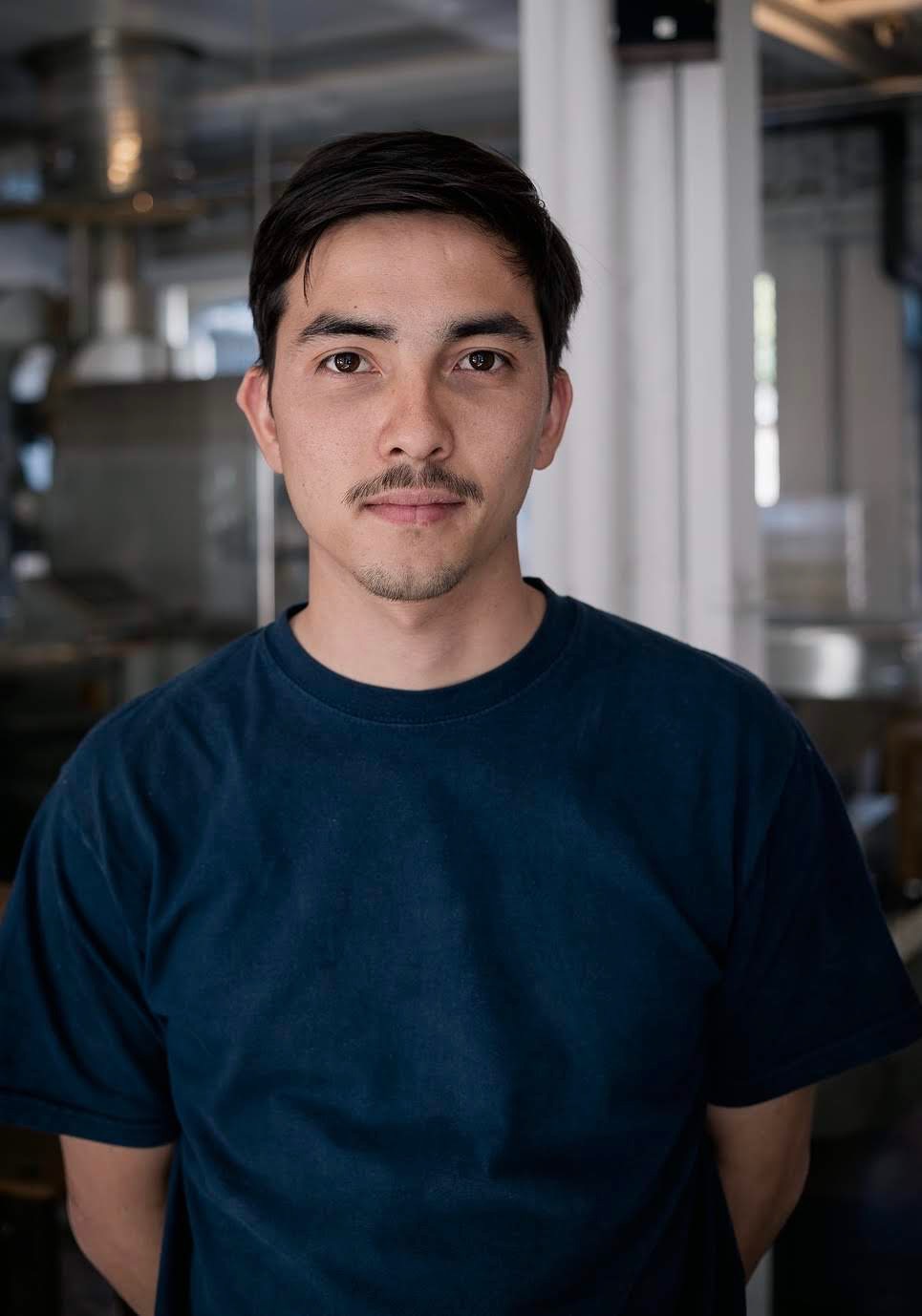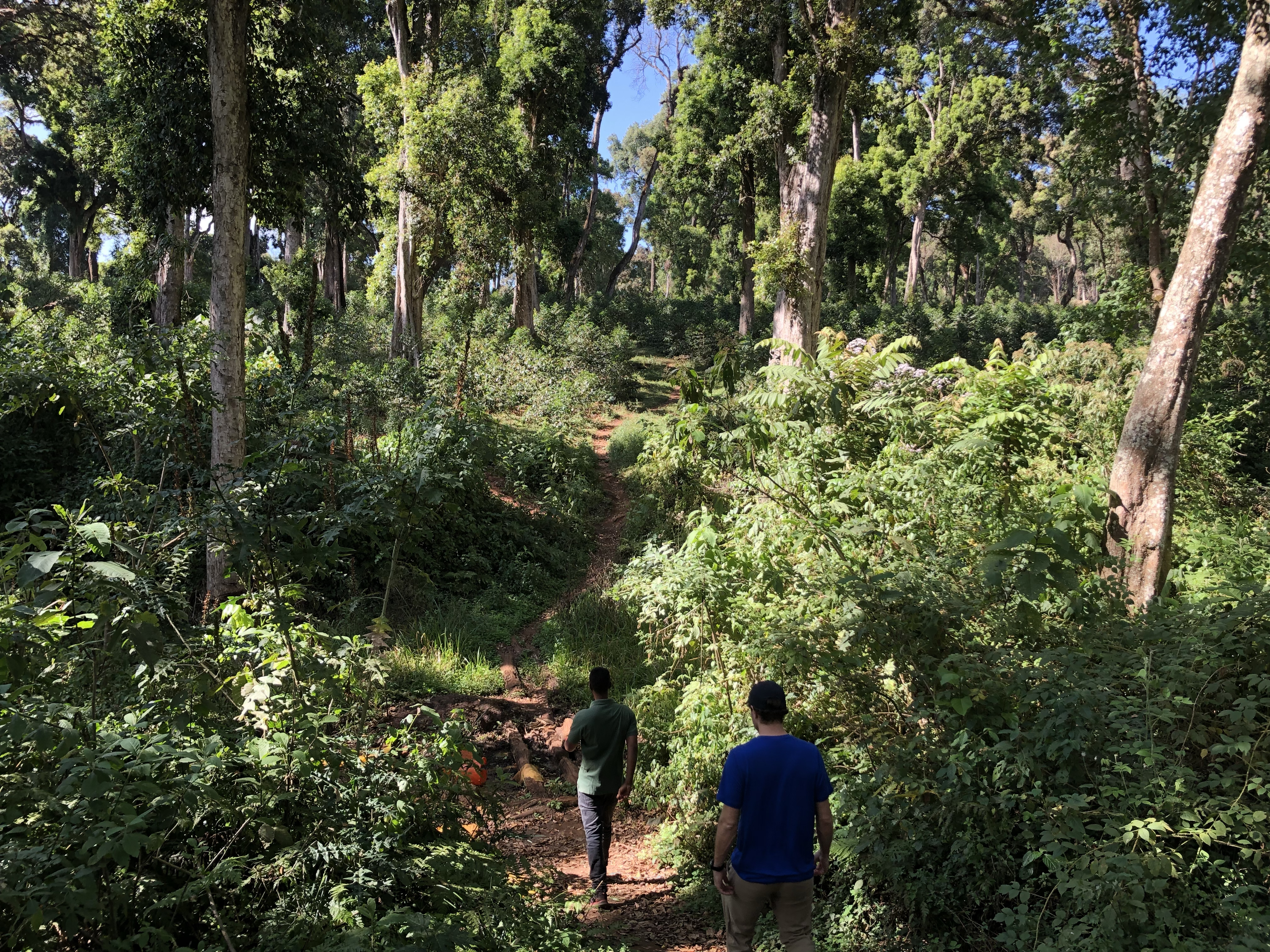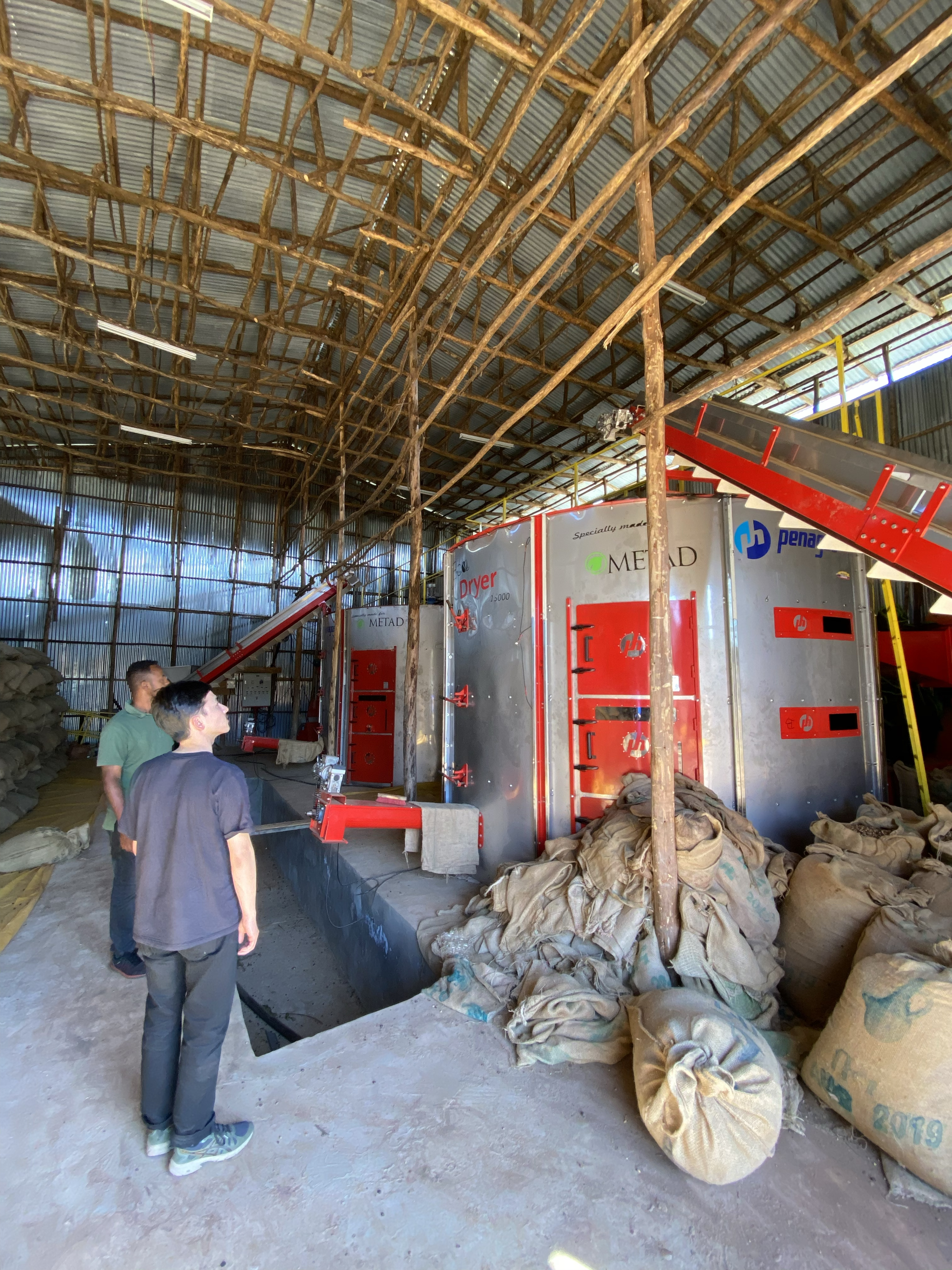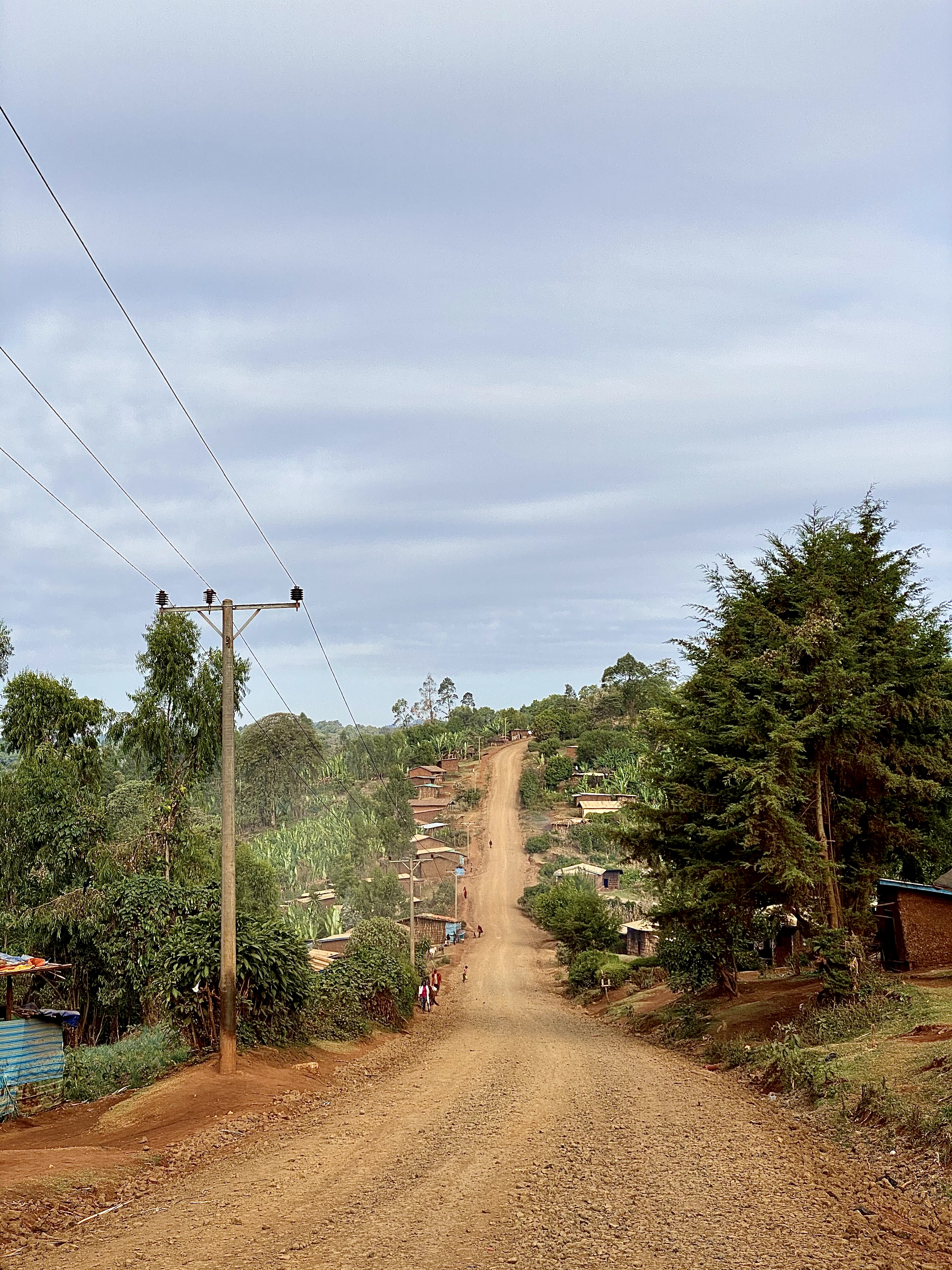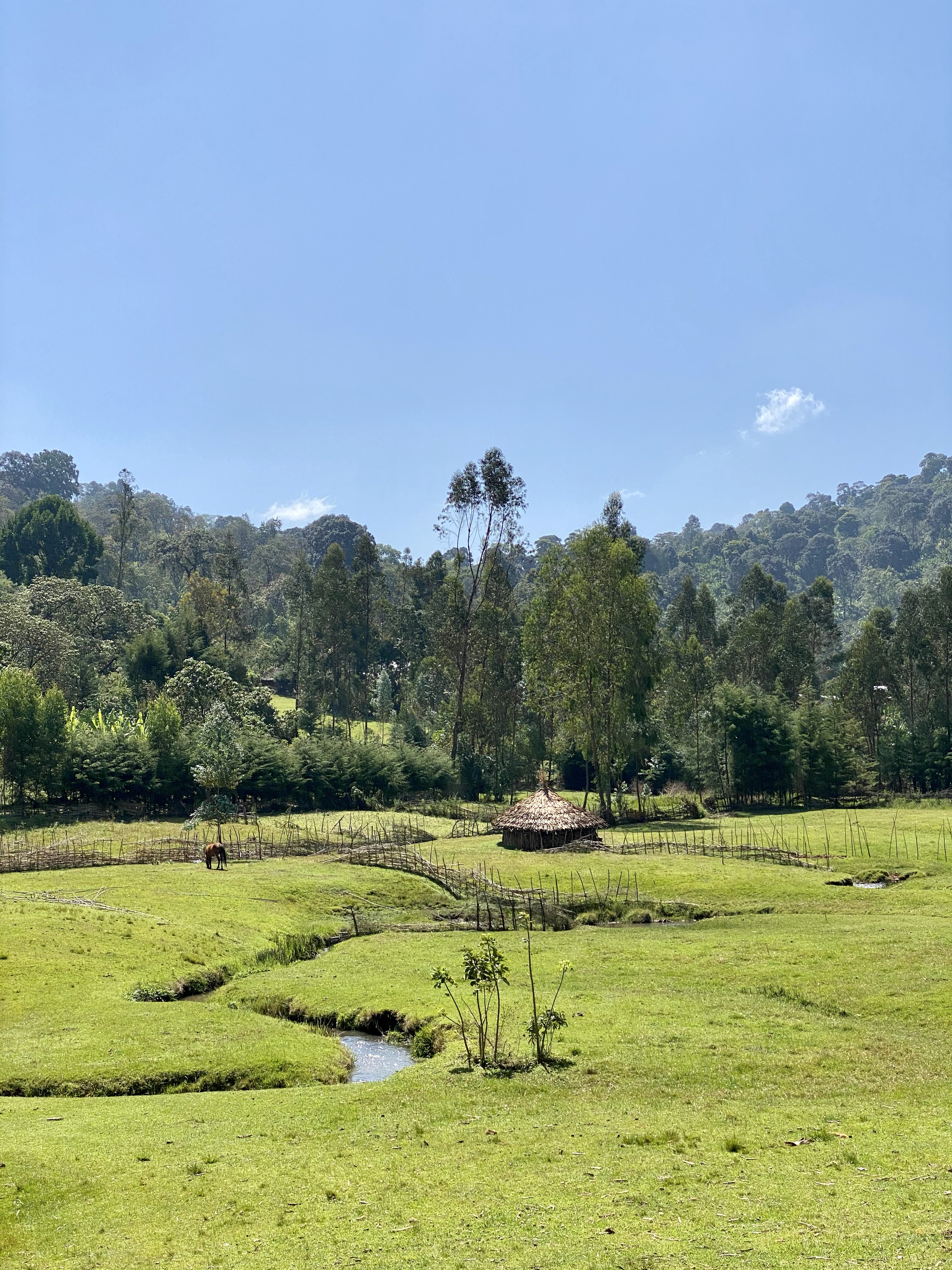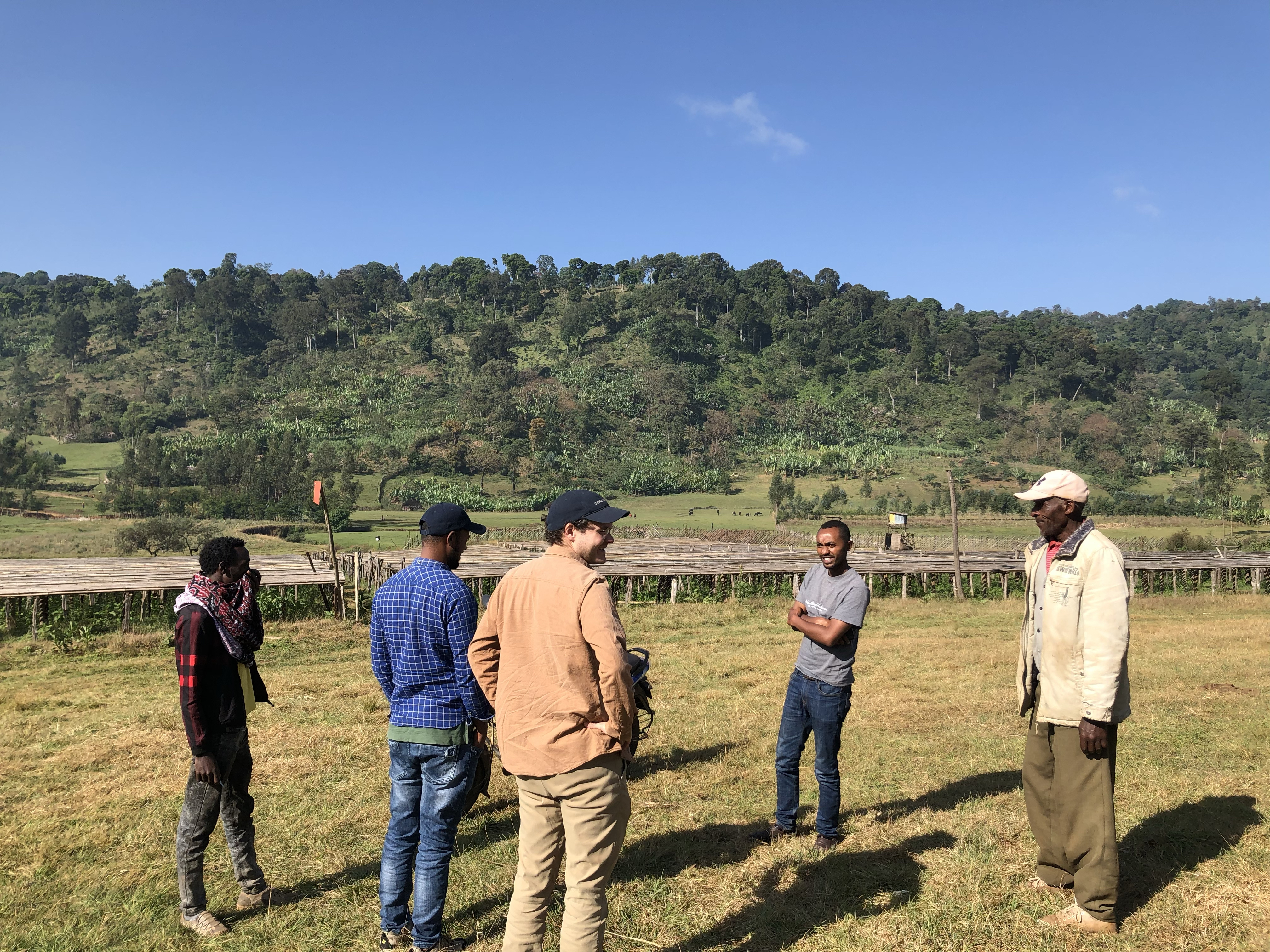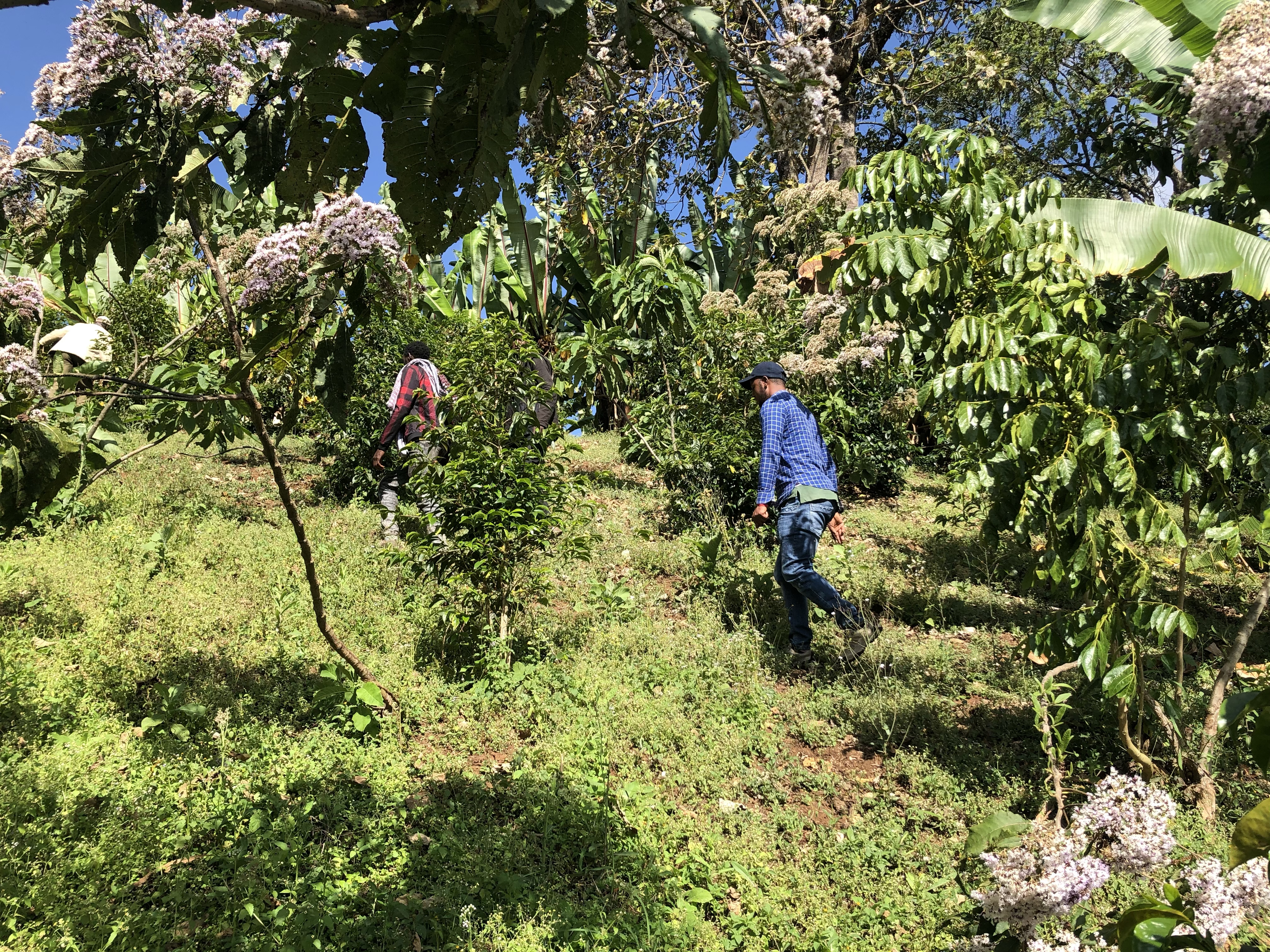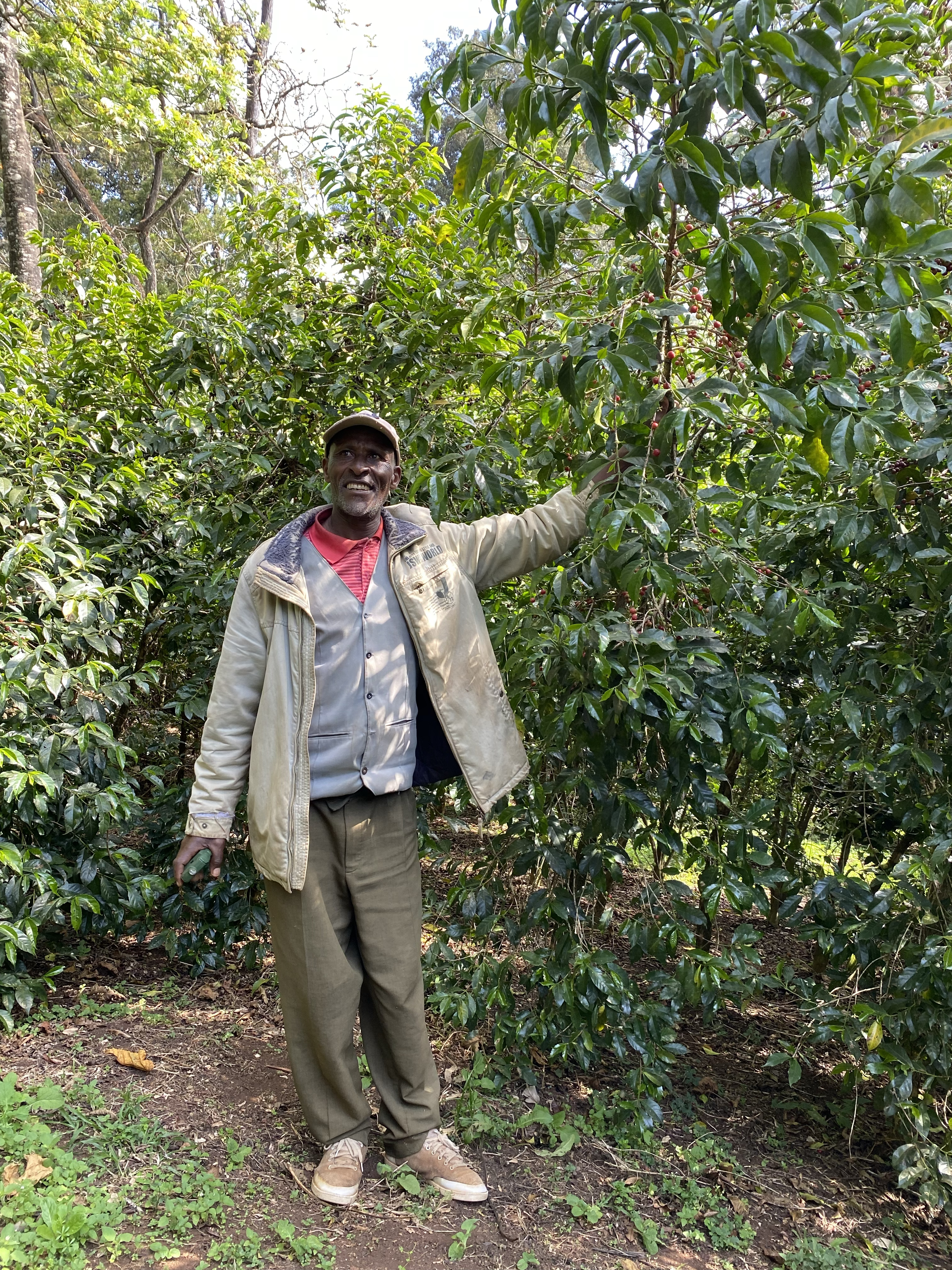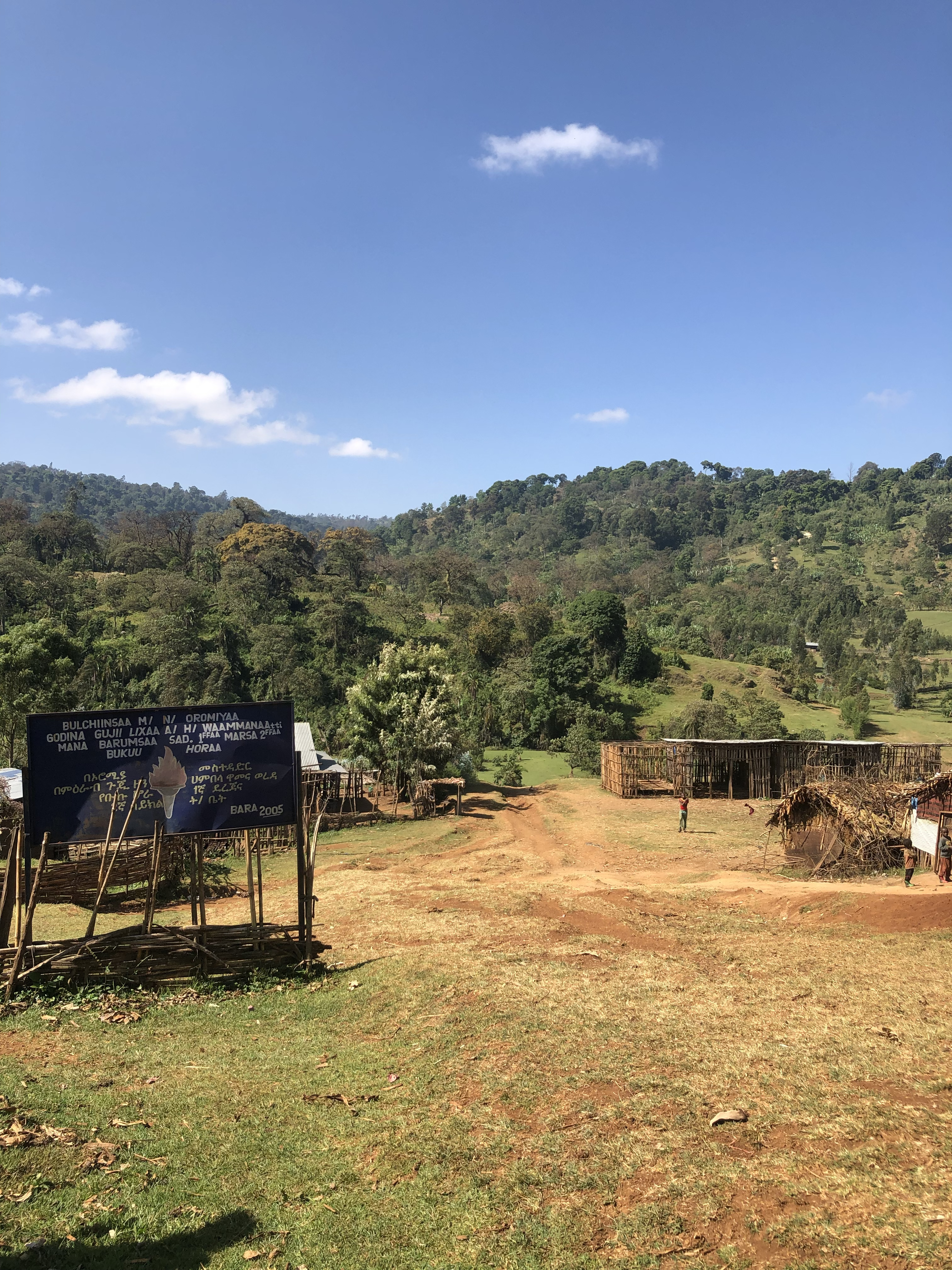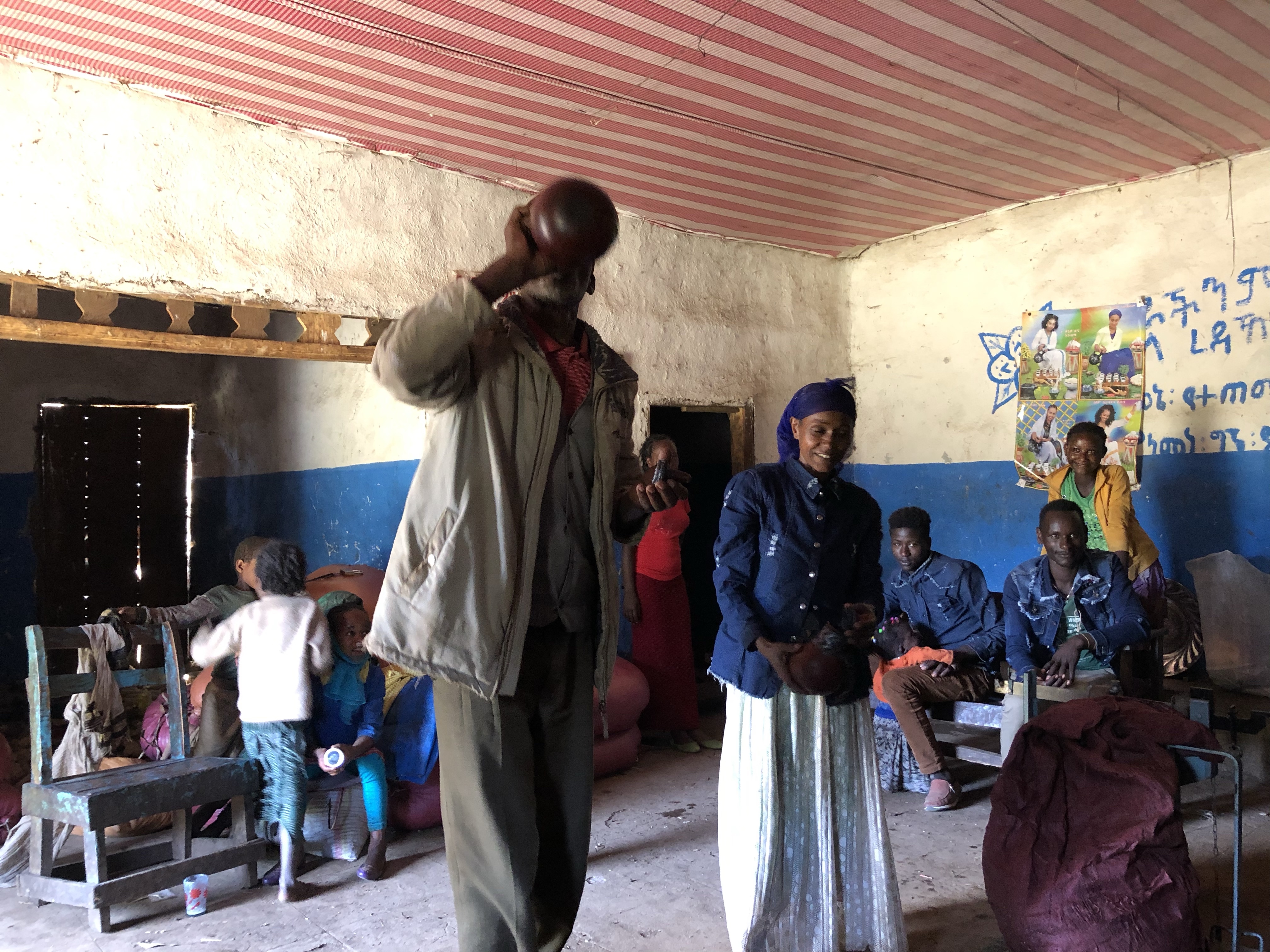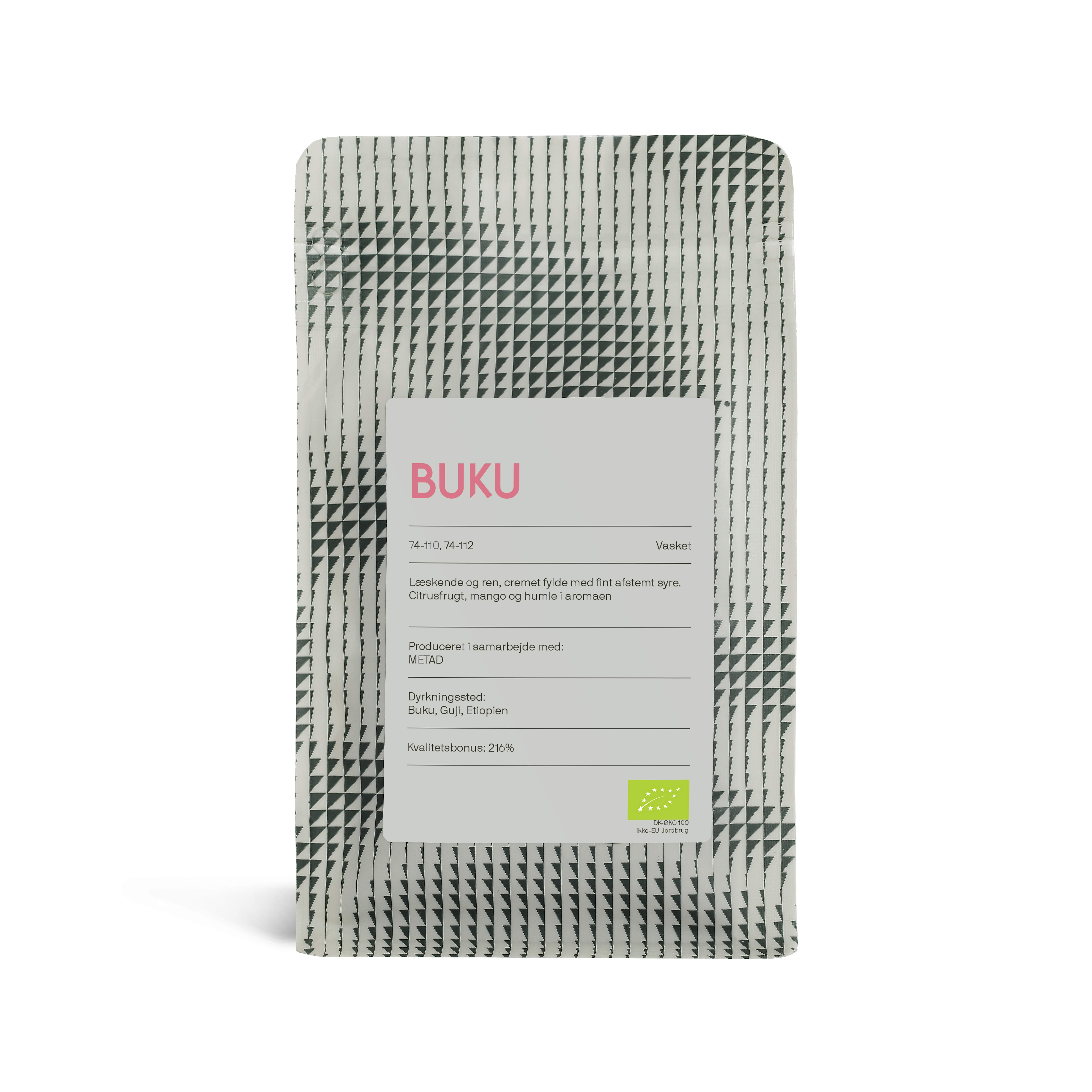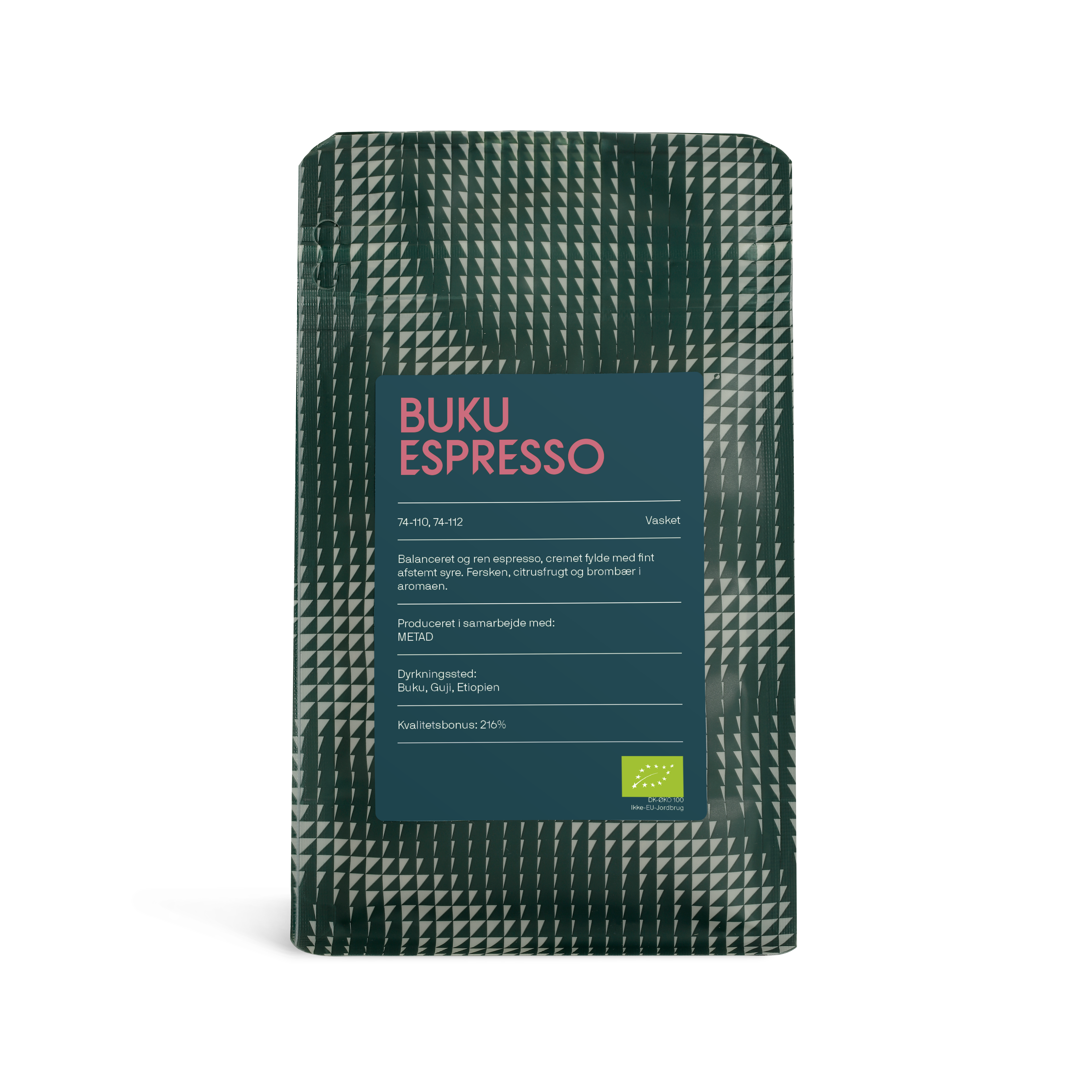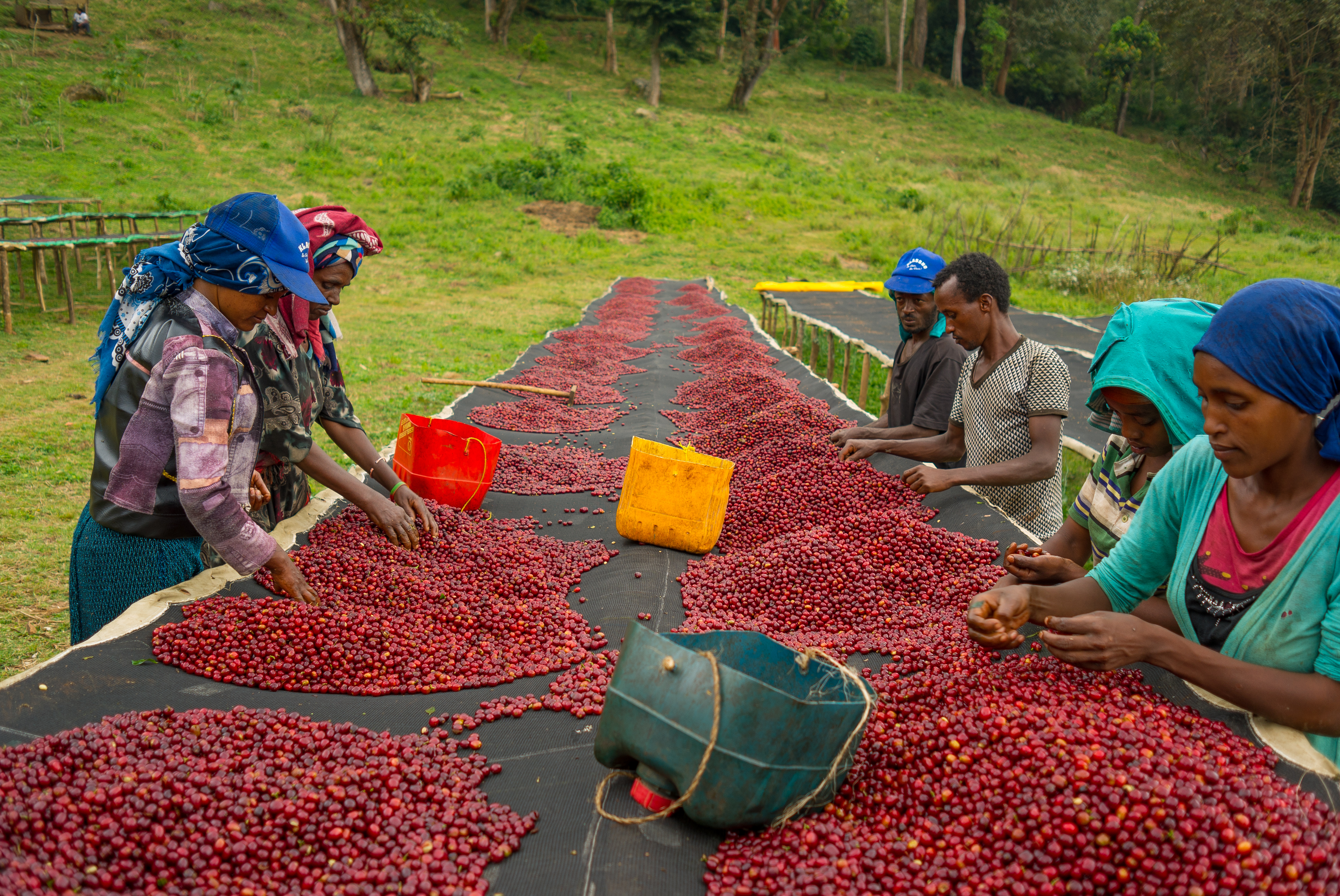After taking the Red-eye to Addis from Stockholm it was a further two-day drive down to the Hambela region in southern Ethiopia. We spent the first night in a comfortable western-style hotel which was welcoming after a rough night in transit but didn’t feel like the most authentic experience for my first trip to Ethiopia and after another morning of driving, we finally arrived at Alaka. The guest houses a group of more modest thatched-roof huts looked a lot more like what I had been imagining.
We spent the rest of the afternoon being shown around by Delnessaw who manages Alaka. He caught us up on progressions at the washing station since Casper’s last visit. The largest of which was the installation of two large Mechanical dryers.
The Ethiopian “Dry Season” usually runs from October to May but changing weather patterns often brought rain and the dryers were to be used to supplement drying beds for when conditions are unfavourable. We know from our experience with mechanically dried coffees from Bolivia and Panama that this can be done with exceptional results, so the new machinery is a welcome addition.
After spending the night in the guesthouses we were to visit Buku the following day. Breakfast consisted of freshly made Injera, an Ethiopian sourdough pancake and eggs scrambled with chilies just picked from the garden. The breakfast was lively and spicy, unlike my usual oats and coffee was served in small cups with a heaped teaspoon of sugar.
Driving in Ethiopia was intoxicating and I never had a shortage of things to look at and wonder about. People, plants, livestock, and wildlife are all thriving, a stark comparison to the lazy past few months in Denmark. When we took a turn off onto a small dirt road at first I thought it was just a driveway and about an hour later down that bumpy dirt road, I had realized that we must be going to a pretty special and remote place. The towns turned into villages and you could feel around here it was a different pace of life. Steadily we were climbing to a higher altitude and you could feel the change in the air.
The area surrounding the Buku can easily be described as picturesque. The wet mill sits in a valley around 2200 masl and up in the surrounding hills, local smallholders grow coffee and other crops. There’s a shallow point in the stream that runs through the valley that allows us to drive through it and on the other side lies the washing station where we were greeted by Aschalew who manages Buku who proceeds to show us around.
The washing station at Buku looks much like that back at Alaka. It is well built, organized, and well maintained. It is clear that METAD is an efficient and quality-driven enterprise.
We are introduced to some of the local farmers including one named Bali. After some discussion, it was decided that we are going to take a hike up to see his plot. Harvesting has now finished for the year and a few weeks prior this would have been impossible.
It’s about a half-hour hike into the surrounding hills and at 2200+ meters I found out it's much easier to get out of breath.
Along the way, we learn that Bali is part of the Lead Famers program. A group of farmers whose exemplary work is used as a model to help train new farmers. He proudly shows us around his plot, which is already flowering for the harvest again later this year.
After the tour, Bali invites us back to see his house and offers us a drink of fresh milk, which I gladly accepted and we begin to make our way down toward the small village nearby the washing station. On the way, we are shown the market where the coffee is weighed bought by METAD or sold to the local market.
Arriving at Bali’s house we are joined by a few members of his family, some interested locals, and our group from METAD. The fresh milk turns out to be a smoked and cultured yogurt drink, unlike anything we've had before. At first, Casper was at first a little skeptical, but it proved to be an amazing and hilarious experience. We were able to talk and laugh together and It felt good to finish the day with a more casual interaction.
You might also like
Related stories
Would you like to get our different coffees delivered directly to your doorstep? We've got you covered.
Address
Coffee Collective
Godthåbsvej 34B
2000 Frederiksberg
CVR: 30706595
Contact
mail@coffeecollective.dk
+45 60 15 15 25 (09.00-15.00)
Coffee and cookies
This site uses cookies.
Find out more on how we use cookies.

